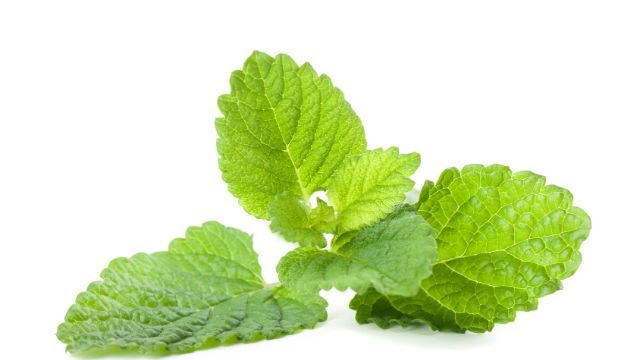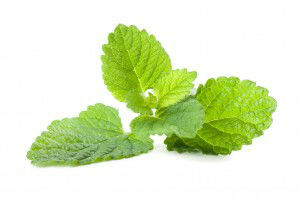
A member of the mint family, lemon balm (Melissa officinalis) is most noted for its sweet, soothing lemony scent. This herb’s medicinal properties date back to the ancient Greeks and Romans, who often referred to it as a “cure-all,” employing lemon balm as a treatment for everything from stomach upset to topical cures for skin ailments. Even earlier writings suggest that this aromatic herb was a staple among healers as far back as 300 B.C.
Lemon balm gets its trademark scent primarily from the phytochemicals citronella and citral, but also contains a soothing blend of geraniol and linalool, providing both a rose and lavender undertone.
From an antioxidant perspective, you can’t find a much more potent source. Lemon balm is high in phenolic, rosmarinic and caffeic acids, as well as terpenes, all flavonoids noted for their potent antioxidant effects. And while the lemon-fresh scent is a definitely a draw, you can reap the rewards of lemon balm in a variety of ways around your home.
Here are five uses for lemon balm you should try.
Culinary creations. Fresh lemon balm leaves can be utilized in a number of different recipes. Pair chopped leaves with pineapple sage and combine with fresh fruits for a fresh twist on fruit salad.
The herb also works well with basil and parsley in vinaigrettes, dressings and marinades. Add chopped or fresh leaves to baked goods, salads and sauces or add a few leaves to freshen up summertime drinks and teas.
DIY crafts. With lemon balm’s sweet scent, it’s no surprise the herb provides a welcome contribution to numerous art and craft projects. Combine dried leaves to make potpourri, sachets and decorative wreaths. Thanks to lemon balm’s noted sedative qualities, the leaves work perfectly in a sleep mask when combined with other soothing herbs such as lavender, catnip and chamomile.
Lotions and potions. With so many chemical-laden products on the market these days, it’s often a struggle to know what is safe to use. You can’t go wrong with homemade lotions, rinses and cleansers utilizing lemon balm’s antibacterial, antifungal and antiviral properties.
Lemon balm leaves infused in apple cider vinegar work well as a purifying bath lotion and lemon balm distillates applied to the skin both cleanse and rejuvenate. A few drops of lemon balm essential oil is also a perfect alternative to perfume.
Medicinal magic. Thanks to lemon balm’s high concentration of numerous phytochemicals, the herb can be used to treat a number of ailments. While historically used as a treatment for practically everything, recent research has noted that the herb’s mood-elevating and anti-anxiety properties may be useful in treating depression and related conditions.
Other research has focused on lemon balm’s antiviral properties, noting that it has the ability to fight sores caused by the Herpes virus, as well as to reduce the infectivity of HIV in exposed patients.
 A gardener’s best friend. Despite lemon balm’s reputation for being a weed, the herb actually has many weed-inhibiting properties. Sprinkling lemon balm leaves around the garden helps keep weeds at bay, while rubbing your skin with crushed leaves helps keep mosquitoes and other critters away. Lemon balm essential oil is also toxic to the cotton leafworm, an insect known for attacking a variety of agricultural crops worldwide.
A gardener’s best friend. Despite lemon balm’s reputation for being a weed, the herb actually has many weed-inhibiting properties. Sprinkling lemon balm leaves around the garden helps keep weeds at bay, while rubbing your skin with crushed leaves helps keep mosquitoes and other critters away. Lemon balm essential oil is also toxic to the cotton leafworm, an insect known for attacking a variety of agricultural crops worldwide.
-The Alternative Daily
Sources:
http://www.herbsociety.org/factsheets/Lemon%20Balm%20Guide.pdf
http://umm.edu/health/medical/altmed/herb/lemon-balm
http://www.psychosomaticmedicine.org/content/66/4/607.short
http://www.retrovirology.com/content/5/1/27

